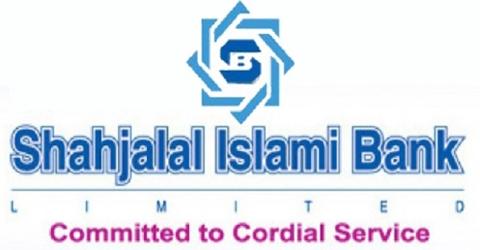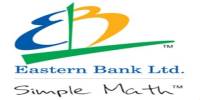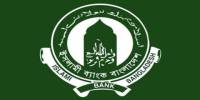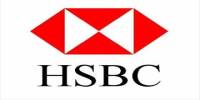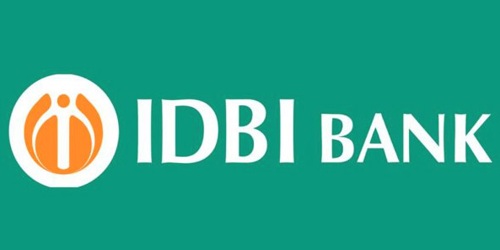Major purpose of this report is to have an overview on Customers’ Perception of Services Quality of Shahjalal Islami Bank Limited, Dhanmondi Branch. Other perceptions are analyze the customers’ perception of Shahjalal Islami Bank and have an idea about the overall service of the bank. This report briefly covers the perception of shahjalal islami bank’s client about their service quality. Finally draw SWOT analysis and find out problems related on customer’s perception of service quality and suggest recommendation.
Objectives of the Report
Broad Objective
The broad objective of the report is to have an overview on Customers’ Perception of Services Quality of Shahjalal Islami Bank Limited Dhanmondi Branch.
Specific Objectives
- To analyze the customers’ perception of Shahjalal Islami Bank
- To have an idea about the overall service of Shahjalal Islami Bank Ltd.
Historical Background of Shahjal Islami Bank Limited
In August 1974, Bangladesh signed the charter of Islami Development Bank and committed itself to reorganize its economic and financial system as per Islamic Shariah. In January 1981, the then Present of Peoples Republic of Bangladesh while addressing the 3rd Islamic Summit Conference held at Makkah and Taif suggested, “The Islamic countries should develop a separate banking system of their own in order to facilitate their trade and commerce.” This statement of the president indicated favorable attitude of the government of the people’s republic of Bangladesh towards establishing Islamic Banking in our country. Earlier in November 1980, Bangladesh Bank sent a representative to study the working of several Islamic banks abroad. In November 1982, a delegation of IDB visited Bangladesh and showed keen interest to participate in establishing a joint venture Islami bank in the private sector. They found a lot of work had already been done and Islamic banking was in a ready form for immediate introduction.
Two professional bodies of Islamic Economics Research Bureau and Bangladesh Islamic Banker’s Association made significant contributions towards introduction of Islamic banking in the country. They came forward to provide training on Islamic banking to top bankers and economists to fill- up the vacuum of leadership for the future Islamic banks in Bangladesh. Their professional activities were reinforced by a number of Muslim entrepreneurs working under the aegis of the then Muslim Businessmen Society. The body concentrated mainly in mobilization of equity capital for the emerging Islamic bank.
At last, the long drawn struggle of The Shahjalal Bank Limited was incorporated as interest free Shariah Based Commercial Bank in Bangladesh as a Public Limited Company with limited as on 1st day of April, 2001 under Companies Act 1994 and commenced commercial operation on the 10th day of May 2001. Shahjalal Islami Bank Limited is based on Islamic Shariah. SJIBL is named after the name of a saint Hajrat Shahjalal (R) who dedicated his life for the cause of peace in this world and hereafter and served the humanity. Its corporate head quarter is situated at 10, Dilkusha, C/A, Jiban Bima Bhaban, Dhaka -1000, and Bangladesh. Now it has 26 branches 17 Branches are in Dhaka, 4 branches are in Chittagong, 4 branches are in Sylhet and 1 branch are in khulna. The sponsors of SJIBL are leading business personalities and renowned industrialists of the country. . During last eight years SJIBL has diversified its service coverage by opening new branches at different strategically important locations across the country offering various service products both investment & deposit. Islamic Banking, in essence, is not only Interest-Free banking business, it carries deal wise business product thereby generating real income and thus boosting GDP of the economy. Board of Directors enjoys high credential in the business arena of the country, Management Team is strong and supportive equipped with excellent professional knowledge under leadership of a veteran Banker Mr. Muhammad Ali.
Elements of Islamic Bank
Prohibition of Interest
The traditional capitalist banking system depends on interest. It receives interest for providing loans and pays interest for taking loans. The spread between these two interests is the source of its profit. But according to Islamic Shariah all types of interest is banned. Islamic Bank does not carry on business of interest and it completely avoids the transaction of interest.
Investing in Halal Business
Islamic Shariah has banned the business of haram goods. For example Islam not only forbids the drinking of alcohol but also banned the business of alcohol/ therefore Islamic Bank does not get any harem business and only do halal business.
Investment Based on Profit
After departing from interest, the alternative ways of income for Islamic Bank are investment and profit. Thus Islamic Bank gives up of any transaction of interest and makes investments based on profit. Bank distributes its profit to its depositors and shareholders.
Halal paths and procedures
Islamic Shariah also rejects any haram path or process in case of a halal business. Therefore Islamic Banking system only allows the halal path and procedures of halal business.
Features of Islamic Banking system
- Prohibition of interest.
- Investment based on profit.
- Investing in halal business.
- Halal paths and procedures.
- Islamic Bank and customer relationship.
- Islamic Bank follows cash based account system.
- It is a multi purpose bank.
- Islamic Bank does not create any credit.
Organization Profile
Vision
To be the unique modern Islami Bank in Bangladesh and to make significant contribution to the national economy and enhance customers’ trust & wealth, quality investment, employees’ value and rapid growth in shareholders’ equity.
Mission
- To provide quality service to customer
- To set high standard of integrity
- To make quality investment
- To ensure sustainable growth in business
- To ensure maximization of shareholders wealth
- To extend customers innovative services acquiring state of the art technology blended with Islamic principles.
- To ensure human resources development to meet the challenges of time
Strategies
- To strive for customers best satisfaction & earn their confidence.
- To manage & operate the Bank in the most effective manner.
- To identify customers needs & monitor their perception towards meeting those requirements.
- To review & updates policies, procedures & practices to enhance the ability to extend better services to the customers.
- To train & develop all employees & provide them adequate resources so that the customers needs are reasonably addressed.
- To promote organizational efficiency by communicating company plans, polices & procedures openly to the employees in a timely fashion.
- To cultivate a congenial working environment.
- To diversify portfolio both the retail & wholesale markets.
SWOT Analysis
Shahjalal Islami Bank has some strength, weakness, opportunity and threat. Such as
Strengths of SJIBL
- Develop Management system: SJIBL has better management system, which is always responsible for better service.
- More found for investment: For adequate financial ability they can provide loan to the more investment clients.
- Straightforward and reliable employee: all of the employees of SJIBL are sincere reliable. They are always devoted themselves to the works for better customer service.
- Shahjalal Islami Bank Limited has already achieved a goodwill among the clients that’s helps it to retain valuable clients.
Weakness of the SJIBL
- SJIBL has lack of ATM booth.
- Credit proposal evaluation process lengthy.
- No substantive use of annual confidential report to reward or to punish employee. Hence employee becomes in efficient.
Opportunities of the SJIBL
Regulatory environment favoring private sector development
- Wide banking network
- Credit card business
- The bank provides the better customer service.
- They can offer micro credit business for small business.
- Many branches can be opened to reach the bank’s services in remote location.
Threats of SJIBL:
- The common attitude of Bangladeshi clients to default.
- Increased competition in the market for public deposit.
- Market pressure for lowering the interest rate.
- Bangladesh bank sometimes requires private commercial banks to be abide by such rules and regulation, which is not suitable, every commercial bank.
Departmental Activities
General Banking (GB)
Generally all sources of activities of a Bank are done in the General Banking. For the better work activities and for better service this General Banking is divided in several activities.
Customer Service
From the Open an account to close the account, generally activities are done in the customer service. How to open an account, How to maintain an account and all source of information for the customers are the activities of the customer service. These desks are treated as some areas like Customer Service, Clearing, Accounts and Reception.
How to Open an Account
a) For an Individual Customer
- Copy the passport, if available or Employer’s Certificate or Commissioner’s Certificate or Letter of Introduction by a person accepted to the Bank.
- TIN Certificate, if applicable.
- Two recent passport size photographs duly attested by the Introducer.
b) For Sole Proprietorship
- Copy of Trade License.
- Two recent passport size photographs of the proprietor/Signatory duly attested by the Introducer.
- Copy of the passport the proprietor/Signatory, if available Commissioner’s/Chairman’s Certificate or Letter of Introduction by a person accepted to the Bank.
- TIN certificate.
c) For Partnership
- Copy of Partnership Deed of the Firm.
- List of Partners with their address and phone number.
- Copy of Trade License.
- Extract of Resolution of the Partners of the Firm for opening the account and authorization for its operation duly certified by the managing Partner of the Firm.
- For Registered Partnership, Certificate of Registration of the Firm along with duly certified copy of the Partnership Deed.
- Two recent passport size photographs of each Partner/Signatory duly attested by the Introducer.
- Copy of Passport of each Partner/Signatory, if available or Commissioner’s/Chairman’s Certificate or Letter of Introduction by a person acceptable to the Bank.
- TIN Certificate.
d) Private & Public Limited Company
- Certified true copy of the Memorandum and Article Association of the Company.
- Certified true copy of Certificate of Incorporation of the Company.
- Certificate true copy of Certificate of Commencement of Business of the Company in case of Public Limited Company.
- Latest list of Directors with address and phone number along with Form XII.
- Extracts of duly adopted Resolution of the Board of Directors of the Company for opening the Account and authorization for its operation duly certified by the Chairman/Managing Director of the Company.
- Copy of Trade License.
- Two recent size photographs of each signatory duly attested by the introducer.
- Copy of the passport of each signatory, if available or Commissioner’s/Chairman’s
- Certificate or Letter of Introduction by a person acceptable to the Bank.
- TIN Certificate.
Other activities of Customer service
- The main activity of the customer service is first to open an account.
- Collect all relevant information from the Customer.
- Issue Checkbook for Savings and Current account.
- Customers Collect Check book For Savings 10 leaf and for the Current 25/50 leaf by the
- Customers also collect VISA card in the way of some formalities.
- Pay Order is issued from the customer service.
- All kinds of Document, which are Demanded by the Customer, is given from the customer service.
- The Document Should is relevant to his/her account. The documents are may be Solvency certificate, Bank Statement, or other supportive Document relevant to his/her account.
- All kinds of information are served for the customer from the customer service
Clearing
On behalf of the customer bank receives their proceeds of instruments such as Drafts, Cheques, Pay Order and sends for collection through these methods:
Outward Bills for Collection (OBC) and Inward Bills for (IBC) within the cleaning houses area.
Clearing
Clearing Department works are classified in two ways:
- Outward Clearing
- Inward Clearing
Outward Clearing:
This instruments drawn on other banks, within the clearinghouse area, are deposited through our clients are sent for collection is called outward clearing.
Procedure for Outward Clearing:
- Instrument received
- Check these items in the instrument: a) date, b) branch, c) amount in words and figure d) signature
- Special crossing seal, clearing seal, endorsement seal as “Payees A/C credited”
- Entry in the Outward Clearing Register.
- Preparation for Clearing House: a) Schedule making, b) send to principal office.
The amount in party A/C in the clearing part is not in the available balance part of the computer program. If the instrument is honored then the amount merges are available balance. This is done by customized software prepared by SJIBL OT Department.
Inward Clearing:
When we receive cheque drawn on our branches within the clearinghouse area presented by other banks is known as inward clearing:
Procedure for Inward Clearing:
- Instrument (DD/Cheque/PO) comes from principal office
- Entry in “Inward Register”
- Cheque – in computer
- DD payable
- Pay Order respective register
- Sign in the register by authorized officer
- Cancellation of instrument
- Send IBCA to Local Office for honored instrument
Send Return memo, showing cause, to Local Office for dishonored instrument
Transfer Delivery:
Transfer delivery is of two types:
- Outward
- Inward
Outward Transfer Delivery:
Instrument send for collection to other branches is outward transfer delivery. Its procedure is like this:
- Receive instrument
- Special crossing seal, transfer delivery seal, endorsement as “payees A/C will credit”
- Entry in “Outward transfer delivery” register
- Schedule enclosed
- Receive IBCA and credit the party A/C
Inward Transfer Delivery:
When instrument come to our branch for collection then it is called inward transfer delivery. Its procedure is as follows:
- Receive instruments
- Verification of following items is taken.
- Branch
- Date
- Amount in words and figure
- Signature
- Serial number
- Entry in “Inward transfer delivery” register
- Voucher
- IBCA issue
Reception
There are some tuff jobs activities in the reception are like
- All phone calls are received and transfer by the receptionist.
- All kinds of inward / outward Documents are registered by the receptionist in the different Register book, Inward, Outward, Local, and Foreign Register.
- The incoming Documents received in reception then the document is going for the marking to the Manager or to the Sub Manager.
Cash Department
Cash department is the most vital department of a bank and it is call blood of a bank. It is a platform to communicate with customers. Cash department receives & pays cash directly.
In the cash department there are following register:
- Vault register
- Cash receive register
- Cash payment register
- Cash balance register
- Rough cash balance book
- Cash remittance register
- Key register
- Cash position memo
There is a procedure of cash in and cash-out from the vault. Also a systematic procedure is maintained for receiving cash through different vouchers and payment against different cheques and vouchers.
Cash Receive:
Cash is the life of a bank. Different types of from are use for cash deposits for different types of accounts. Cash may be received by the following ways:
- Current of Savings account pay-in-slip
- Credit voucher
- Different types of instrument remittance (TT, DO, PO etc.) are received by respective forms.
- Bills like National Life Insurance Co. Ltd.
- Share collection
- Different types of scheme
Cash payment:
Cash is paid in payment counter against the following instrument:
- Cheques
- Cash debit voucher
- Pay-in-slip
- Pay Order, DD etc.
- Bank’s expense also paid to outsider through cash debit voucher.
Procedure:
Receive of the cheques with a signature behind it.
- Scrutinize it by an authorized officer.
- Submit to computer-to-computer section for checking the available balance.
- Cancelled & seal up “Pay in Cash” and cancellation through sign up.
- Again submitted to computer section for debiting the party A/C and seal up “Posted”.
Cash Balance
- Sum of total received
- Sum up total payment
- Total receiving + Opening balance – Total payment = Closing balance for that day & opening balance for the next day.
- Check it with computer sheet.
- Counting cash.
- Entry the cash balance register.
- Write cash position memo with denomination.
Sorting and Stitching:
Sorting:
At the end of the day, the amount of cash has to be sorted out in order to identify the different types of notes, say-500, 100, 50, 20,10,5 and so on. Hundred pieces of any type note create a packet and ten packets make a bundle. In this way, the cash is actually sorted out.
Stitching:
After sorting out the cash, packets are stitched along with a slip bearing the name of the bank, total number of notes and the signature of the cash-in-charge. Two round seals are given at both sides of the packet.
Vault Opening:
The vault opened with two different keys of two respective authorized officers. The officers are:
- Manager of the Branch
- Cash – in – charge Officer
Strong room has two keyholes opened by two officers respectively by two keys of cash. Generally sub-manager of the Branch bears authority absence of manager. Grill door one keyhole opened by – two keys of two officers and bring out following thing: Cash, Vault register, Receive register, Payment register, Balance Book, security station. Enter the amount of cash withdrawal from the vault register.
Vault limit:
Vault is the very secret place to keep money in the bank. Usually vault is made of very hard material like iron or steel, generally it is fireproof, damp-proof. The vault has a fixed limit too. The limitation depends on the regular transaction of the branch. If the amount exceeds its limit, the extra money should be sent to the Bangladesh Bank. The vault limit of the Foreign Trade Branch is Tk.1.5 (one and half) crore.
Vault Closing:
Before vault closing concern officer will –
- Cheque receives, Payment, Cash balance, Vault register signature.
- Signature of the computer sheet.
- Count physical cash.
- Keep cash in safe.
- Bundle in safe.
Remittance department
Shahjalal bank has the remittance department. Shahjalal bank is increasing the profit day by day. This bank earns profit from remittance department. There have two types of remittance 1. Local remittance 2. Foreign remittance.
Local Remittance
Local Remittance means sending money from one place to another for the customers and it is very important service system in our country. For this service, our country business sectors are get facility by transfer funds from one place to another. Some of the instrument that Shahjalal Islami Bank Limited, Foreign Trade Branch provides are immense beneficial to the clients. These are:
- Demand Draft (DD)
- Pay Order (PO)
Demand Draft (DD):
Demand Draft is an order of issuing bank in another branch of the same bank to pay specified sum of money to the payee on demand. It is generally issued when customer wants to remit money in any place which is out of the clearinghouse area of issuing branch payee can be purchaser himself or another. Bearing money may be risky.
Pay Order (PO):
This is very important instrument of the Bank. Pay Order gives the payee the right to claim payment from the issuing bank. It can be en-cashed from issuing bank only. Unlike Cheque, there is no possibility of dishonoring pay order because before issuing pay order banks takes out the money of the pay order in advance.
| Pay Order Amount (Taka) | Commission And Vat (Taka) |
| Up to 1.00 Lac | 50+8=58 |
| Up to 5.00 Lac | 100+15=115 |
| Above 5.00 Lac | 150+23=173 |
Foreign remittance
Foreign remittance is a transfer of money by a foreign worker to his home country. Money sent home by migrants constitutes the second largest financial inflow to many developing countries, exceeding international aid. Remittances are playing an increasingly large role in the economies of many countries, contributing to economic growth and to the livelihoods of needy people (though generally not the poorest of the poor). As remittance receivers often have a higher propensity to own a bank account, remittances promote access to financial services for the sender and recipient, an essential aspect of leveraging remittances to promote economic development.
PRODUCTS & SERVICES
Deposit Scheme
Bank account is a contractual relationship between a bank and the customers. It is the best way for a customer to build relationship with the bank. Like interest-based conventional banks, the main function of Shahjalal Islami Bank Limited (SJIBL) is to mobilize saving and provide financial support to the entrepreneurs. Depositors receive interest in a predetermined rate for their deposits make with an interest based banks, where SJIBL neither pay not receive interest and mobilizes saving of the common people in line with Islamic Shariah.
Deposit account can take in a various forms such as:
- Al – Wadiah Current Deposit (AC)
- Mudarabah Savings Deposit (MSD)
- Short – Notice Deposit (SND)
Al – Wadiah Current Deposit (ACD)
Shahjalal Islami Bank Limited receives deposits in its Al – Wadia Current Account. It has some similarity with the current account of conventional bank. The term Al – Wadiah Current Deposit means deposit of money allowing somebody to sue it. Banks being trustee preserves and keeps or in safe custody of what is deposited.
Mudaraba saving Deposit (MSD)
It is open by the lower and middle people who wish to save a part of their incomes to meet their future need intend to earn an income from their savings. It aims at encouraging savings of non-trading persons(s), institution(s), society, etc. by depositing small amount of money in the bank.
Restriction on withdrawals and deposit:
- The number of withdrawals over a period of time is limited. Two withdrawals per week are permitted. But more than that no interest will be paid on rest amount for that month.
- The total amount of one or more withdrawal on any date should not exceed 25% of the in the accounts unless 7 (seven) days advance notice is given.
- The customer may deposit any amount in the savings bank account subject to a minimum of Tk.2000/- in the account.
Mudaraba Short Notice Deposit (MSND)
Shahjalal Islami Bank Limited also receives term deposit from the clients. The SND account is different from the interest-based banks. It is also a Time Deposit account. The formalities for opening of this account are similar to those required for Al-Wadiah Current Account. The only difference is that seven (7) days notice is required for withdrawal of any sum and profit is paid. The rate of profit for this account is 5%. If the withdrawal on demand is desired, it may be paid subject to the for-feature for the period of notice or the expired of notice.
The Shahjalal Islami Bank Limited (SJIBL) is containing some Deposit Scheme, which are the really profitable for bank and customer. The Bank maintains Shariah –based transaction with their customer by different Scheme those are
- Monthly Deposit Scheme (MDS)
- Mudarah Term Deposit Receipt (MTDR)
- Monthly Income Scheme (MIS)
- Double Profit Deposit Scheme (DPDS)
- Millionaire Scheme (MS)
- Hajj Palon Scheme (HS)
Monthly Deposit Scheme (MDS/DPS)
This account open very easy and there are no fixed day to open. Account holders do not need any savings account if he/she directly pays their monthly installment. Account holders carefully complete the MDS form and attests two copies passport size photograph one nominee and other own with form.
MudarabaTermDeposit Receipt (MTDR)
It is like a fixed deposit in the conventional banking system but it does not receive or accept interest father, this account give profit and collect deposits. After the matured if client don’t withdraw his/her money than it will be auto renewed with imposed profit for the next days.
Monthly Income Scheme (MIS)
This scheme is very popular in our country, job retreat people opens this scheme. And which people are not able to do business than they are wanting to safe from risk and they open it. It is the scheme for profit earning. In this account depositor can deposit minimum of Tk. 50,000/- and above. it is the fixed deposit for 3 (three) years.
Double Profit Deposit Scheme (DPDS)
The Shahjalal Islami Bank gives the facility to the client by the Islamic Shariah Mudaraba rules and regulations. In this scheme depositors can deposit more than Tk.10, 000 for 6 years and after the maturity date accountholder will receive double than his/her deposited amount. Depositor will get 80% investment facility by deposit the deposit receipt.
Millionaire Scheme:
It maturity is long than other scheme. Generally this account is designed for children. Here, applicants are the selected people for operating the account on behalf of the accountholder. The depositor should to deposit the account within first 15 days of the month; neither will he/she be designated as debtor to the bank.
Hajj scheme
Hajj is compulsory for all who are the ability to hajj at that cause Hajj is important for all. Hajj is the important way for the Islam but many people have the interest but there have no ability. Many people create the ability but at that time they are physically weak. At that cause Shahjalal Islami Bank open this scheme.
Requirements for this scheme
- Must be age above 18.
- Account holder must be citizen of the Bangladesh.
- Account holder must be need the attested photo with introducer.
- Gradient can maintain their account for the child.
Duration of the scheme:
- This account is duration time is 1 year to 25 year.
- 12 monthly schemes within one year.
Other deposit schemes:
- Mudaraba Lakhpoti Deposit Scheme
- Mudaraba Education Deposit Scheme
- Mudaraba Marriage deposit Scheme
- Mudaraba Mohor Deposit Scheme
- Special MTDR Scheme
FINDINGS & ANALYSIS
My main objective is to identify the customers’ perception of service quality of Shahjalal Islami Bank Limited (Dhanmondi Branch). In below I analyze my findings in a descriptive way. I used SPSS software to complete my report so the data are given is reliable and perfectly analyzes. I went to different groups of client to collect information for my research. I used Descriptive Analysis & Frequency Distribution.
Descriptive Analysis and Frequency Distribution:
To analyze my respondents’ answer I did descriptive analysis and frequency distribution.
Descriptive Analysis: It refers the transformation of raw data into a form that will make them easy to understand and interpret; rearranging, ordering, manipulating data to provide descriptive information.
Frequency Distribution: It refers a set of data organized by summarizing the number of times a particular value of a variable occurs.
I targeted my sample size as 50. By using descriptive analysis and frequency distribution, I can assume about the total population. I did the analysis for all the questions. Those are given descriptively and graphically as follows:
GENDER
| Frequency | Percent | Valid Percent | Cumulative Percent | ||
| Valid | male | 24 | 48.0 | 48.0 | 48.0 |
| 26 | 52.0 | 52.0 | 100.0 | ||
| 50 | 100.0 | 100.0 | |||
My sample size was 50. Among them I found that there is 24 male and 26 female. I can also see that 48%male and 52% female was my respondent.
AGE
31-45 yrs 46-60 yrs more than 60 yrs Total
| Frequency | Percent | Valid Percent | Cumulative Percent | ||
| Valid | 15-30 yrs | 13 | 26.0 | 26.0 | 26.0 |
| 16 | 32.0 | 32.0 | 58.0 | ||
| 15 | 30.0 | 30.0 | 88.0 | ||
| 6 | 12.0 | 12.0 | 100.0 | ||
| 50 | 100.0 | 100.0 | |||
I divided my respondent’s age group into four classes. Among them 15-30 years old were 13 people. 31-45 years old were 16 persons. 46-60 years old were 15 persons. More than 60 years old were 6 persons. So the available clients are between 31-45 years old.
Occupation
Business person Others Total
| Frequency | Percent | Valid Percent | Cumulative Percent | ||
| Valid | Service Holder | 12 | 24.0 | 24.0 | 24.0 |
| 18 | 36.0 | 36.0 | 60.0 | ||
| 20 | 40.0 | 40.0 | 100.0 | ||
| 50 | 100.0 | 100.0 | |||
My sample size was 50. Among them I found that there is 12 Service holder and 18 Business persons & 20 others occupation holder. I can also see that 24% Service holder and 36% Business persons & 40% others Others occupation holder includes Student,Housewife,Retried person etc.
Among different schemes of Shahajalal Islami Bank which one you prefer most
Mudaraba term deposite(MTD) Mudaraba Lakhopoti Deposite scheme Visa debit card/visa prepaid card(local/international) pay order Total
| Frequency | Percent | Valid Percent | Cumulative Percent | ||
| Valid | Mudaraba savings/Alwadiah current | 9 | 18.0 | 18.0 | 18.0 |
| 13 | 26.0 | 26.0 | 44.0 | ||
| 13 | 26.0 | 26.0 | 70.0 | ||
| 9 | 18.0 | 18.0 | 88.0 | ||
| 6 | 12.0 | 12.0 | 100.0 | ||
| 50 | 100.0 | 100.0 | |||
I have selected five popular schemes in the general banking of Shahjalal Islami Bank. Among them Mudaraba Term Deposit (MTD) & Mudaraba Lakhopoti Deposit are more popular.
ASSURANCE DIMENSIONS
Q-1 Employee in Shahjalal Islami Bank has the knowledge to answer your question
disagree agree strongly agree Total
| Frequency | Percent | Valid Percent | Cumulative Percent | ||
| Valid | strongly disagree | 10 | 20.0 | 20.0 | 20.0 |
| 2 | 4.0 | 4.0 | 24.0 | ||
| 25 | 50.0 | 50.0 | 74.0 | ||
| 13 | 26.0 | 26.0 | 100.0 | ||
| 50 | 100.0 | 100.0 | |||
I have chosen 50-sample size for my survey. I also add that I got various types of answer from my respondents. My first question was employee in shahjalal bank have the knowledge to answer your question. Most of the respondent was agree with this comment. 25 respondents were agreed with this statement. Here strongly agree was 13 and disagree was 2 & strongly disagree was 10.
Q-2 you feel safe in your transaction with Shahjalal Islami Bank
uncertainty agree strongly agree Total
| Frequency | Percent | Valid Percent | Cumulative Percent | ||
| Valid | disagree | 12 | 24.0 | 24.0 | 24.0 |
| 4 | 8.0 | 8.0 | 32.0 | ||
| 21 | 42.0 | 42.0 | 74.0 | ||
| 13 | 26.0 | 26.0 | 100.0 | ||
| 50 | 100.0 | 100.0 | |||
21 respondents were agreed with the comment and 13 were strongly agreed. 4 respondents were uncertain and 12 respondents were disagreed. But there were no strongly agreed respondents.
Q-3 Employees in Shahjalal Islami Bank is consistently courteous with you
disagree uncertainty agree strongly agree Total
| Frequency | Percent | Valid Percent | Cumulative Percent | ||
| Valid | strongly disagree | 8 | 16.0 | 16.0 | 16.0 |
| 12 | 24.0 | 24.0 | 40.0 | ||
| 8 | 16.0 | 16.0 | 56.0 | ||
| 16 | 32.0 | 32.0 | 88.0 | ||
| 6 | 12.0 | 12.0 | 100.0 | ||
| 50 | 100.0 | 100.0 | |||
Employees in Shahjalal bank is consistently courteous with you. 16 respondents were agreed with the comment and 12 respondents were disagreed with the comment. 8 respondents were uncertain and 6 respondents were strongly agreed.
Q-4 The behavior of employees in Shahjalal Islami Bank instills confidence in you.
| Frequency | Percent | Valid Percent | Cumulative Percent | ||
| Valid | strongly disagree | 6 | 12.0 | 12.0 | 12.0 |
| disagree | 6 | 12.0 | 12.0 | 24.0 | |
| uncertainty | 2 | 4.0 | 4.0 | 28.0 | |
| agree | 23 | 46.0 | 46.0 | 74.0 | |
| strongly agree | 13 | 26.0 | 26.0 | 100.0 | |
| Total | 50 | 100.0 | 100.0 | ||
The behavior of employees in shahjalal Islami Bank instills confidence in you.23 respondents were agreed & 13 respondents were strongly agreed.6 respondents were strongly disagreed.6 respondents were disagreed. The rest of respondents were uncertain.
Special Findings
- My Sample size was 50.I divided my respondents’ age group into four classes. persons. The available clients are between 31-45 years old.
- Among the respondents’24% Service holder and 36% Businesspersons & 40% others occupation holder includes Student, Housewife, Retried person etc.
- I have selected five popular schemes in the general banking of Shahjalal Islami Bank. Among them Mudaraba Term Deposit (MTD) & Mudaraba Lakhopoti Deposit are more popular.
- Respondents prefer Mudaraba Term Deposit (MTD) & Mudaraba Lakhopoti Deposit because these schemes is auto renewable & easy to encashment for a client.
- From my survey I also found that most of the businesspersons prefer pay order scheme. On the other hand service holder prefer Savings Scheme
- Some respondents said employers of Shahjalal Islami bank should show more sincere interest in case of problem solving.
- From respondents’ response it is easy to say that employers of shahjalal bank does not provide prompt service to all customer.
- The operating hours of Shahjalal Islami Bank is convenient to all customers. But few Govt, officer said it is not suitable operating hours for them.
Recommendations
Based on my three months observation in the bank, I achieved lot of practical knowledge. Besides From my survey I identified some problems regarding service quality &try to give some recommendation to improve service quality.
- Sometime service quality shows the company overview or product quality so they need to think about it.
- Shahjalal Bank should give prompt service to all customer
- Shahjalal Bank should give some exclusive offering that retains their clients.
- The operating hours of Shahjalal bank doesn’t match with govt.officer .So they should look into this matter.
- They should increase number of ATM booth.
- Bank should introduce consumer credit scheme.
Conclusion
The performance of a Banks today competitive business is important. Just few years ago the number of bank was very small. So the competition was not a strong as its today. Things have changed with the emergence of many new banks now the Customers have option to take the one that the best so the current banking business scenario is simply highly competitive.
After doing this exploratory research I learn many things about banking activities and its affects on client perception. From my research and analysis I got lot of result about the Customers’ Perception of Service Quality of Shahjalal Islami Bank Limited Dhanmondi Branch. I identified that many of the respondents from my sample aware about the service quality of Banking activities. But in case of client retaining it has no significant affect on clients. On the other hand in some case it affects clients to choose different schemes of banking services.
